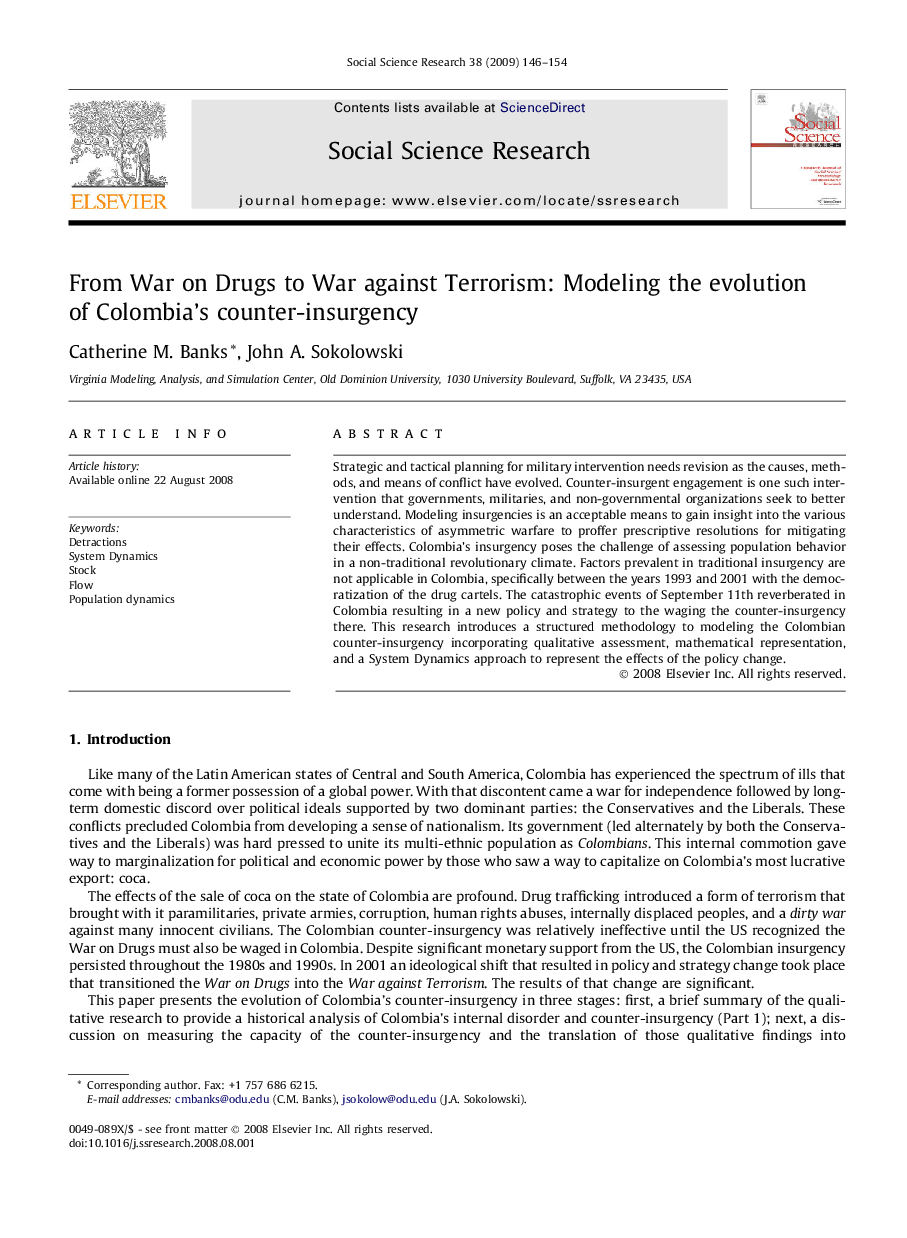| Article ID | Journal | Published Year | Pages | File Type |
|---|---|---|---|---|
| 956452 | Social Science Research | 2009 | 9 Pages |
Abstract
Strategic and tactical planning for military intervention needs revision as the causes, methods, and means of conflict have evolved. Counter-insurgent engagement is one such intervention that governments, militaries, and non-governmental organizations seek to better understand. Modeling insurgencies is an acceptable means to gain insight into the various characteristics of asymmetric warfare to proffer prescriptive resolutions for mitigating their effects. Colombia's insurgency poses the challenge of assessing population behavior in a non-traditional revolutionary climate. Factors prevalent in traditional insurgency are not applicable in Colombia, specifically between the years 1993 and 2001 with the democratization of the drug cartels. The catastrophic events of September 11th reverberated in Colombia resulting in a new policy and strategy to the waging the counter-insurgency there. This research introduces a structured methodology to modeling the Colombian counter-insurgency incorporating qualitative assessment, mathematical representation, and a System Dynamics approach to represent the effects of the policy change.
Related Topics
Social Sciences and Humanities
Psychology
Social Psychology
Authors
Catherine M. Banks, John A. Sokolowski,
